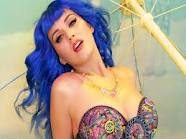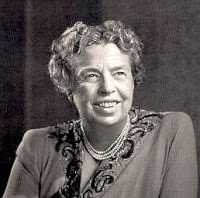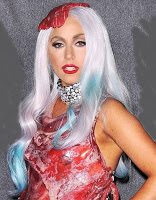Models or Role Models?

Throughout history, people have claimed the latest generation is going to the dogs: they haven’t learned good values, they don’t know anything, and they don’t care about anything except shallow pleasures. The advent of television gave rise to a tide of such bemoaning. The advent of the Internet has done the same. Even before these, the advent of the romance novel was similarly greeted with dismay and suspicion. As I and many others pointed out earlier this year, people are still attacking the romance novel as if it were singlehandedly guilty of scooping out women’s brains and turning them into loose-moraled zombies.

The latest round of concerns include an independent film, Miss Representation, which speaks to how female images in movies and other visual media don’t show anywhere near an accurate or respectful picture of women. Concern over how much time young people spend on computers is the huge second prong of this eternal worry. Manga, imported comics from Japan, have become very popular with young American women, but they feature fantasies about subservient females in a notoriously chauvinistic society. Oh, and let’s not forget the celebrity craze, the constant publicity churn of gossip and photos about women in the movie and television business, including individuals with no discernible talent, morals, or wit.
Are these concerns justified? Yes, and no. The most serious of the concerns is the charge that women see themselves misrepresented nearly everywhere they turn. This is definitely true. In the media, we are all extremely slender and have long, lustrous hair, and wear body-baring designer clothing that reveals only well-toned flesh. In the media, there are no muffin tops.

All we have to do is look around us to know that media representations of women are false. If we women were so stupid as to take all our cues from the oversimplifications of the media, we would all aspire to be high fashion models, women who are paid to do nothing but stand or sit all day and make clothing look attractive. Are we that vapid? Most of us are not. Are models that stupid? No, the top models and former models are entrepreneurs, television and movie stars, women who have leveraged their images to sell clothes, accessories, scents, and more. These are not passive avatars of women. Movie or pop stars get the lion’s share of media attention because they are pretty or visually interesting, and because media outlets are paid to promote them. Yet all around us today we also see images of successful women, from politicians and journalists to educators and scientists. Probably not enough of the nonglamorous ones, it’s true. Media coverage of starlets is flashier and sexier, but does that mean we take them seriously? Isn’t the biggest success of modern television the reality show, in which real people are shown with all their personal foibles?

Even if we fearfully agree that most public images of women are toxic, there’s an antidote easily to be found in any romance novel. Heroines of romance usually are not super beautiful, not super rich, and not super lucky, either. They have battles to fight, and often have to overcome immense obstacles to win. Plastic surgery and stints in a celebrity rehab facility are not their weapons of choice. Neither are boob jobs and designer gowns, although sometimes a pretty dress does play a role in a romance. Romance novels are written about ordinary women in challenging situations. Passive glamour has little place in today’s romance novel. Instead, heroines are the architects of their own success, either through their own personal growth, or through their heroic actions. It is not by accident that the typical paranormal romance heroine is a kick-ass savior of the universe. Women in our society today feel their strength and want to read stories embracing their strength. Even if these stories take place in dystopian futures (although the world economy today surely presents a strongly dystopian situation right now), these women are powerful. They have strong moral cores, they don’t care about superficials such as appearance or possessions, and they are not afraid to do the right thing. Heroines of contemporary romance may not save the universe quite so obviously, but one piece at a time, they fight to improve their lives and those of the people around them. Whether in small towns or huge corporations, the romance heroine strives to do the right thing, and achieves her goal. Romances empower women.

What is unique about romance novels is they tell the woman’s story, and from her point of view. As such, they are a tremendous asset in the battle for young women’s minds. Detractors might argue that romances teach women that finding the right man is the most important thing ever, but that is to oversimplify the definition of the right man. Finding the right person is in fact a serious goal for all humans, and the more carefully rightness is defined, the better understanding we have of what constitutes a basis for happiness in life. Thus finding the right man is another version of doing the right thing.
Bottom line, people are not as stupid or vapid as we worry they are, and there are media alternatives to shallow representations of women.
